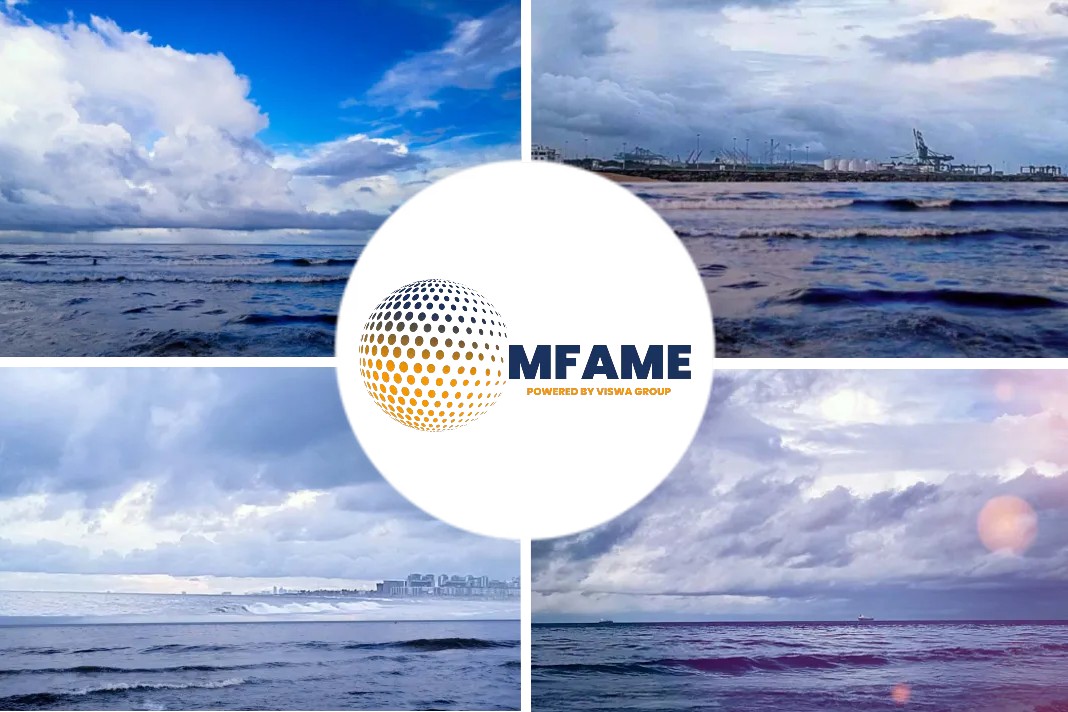As Sri Lanka deals with its worst marine ecological disaster after the sinking of a Singapore-registered container ship, questions have been raised about who bears the responsibilities in maritime incidents, reports Xinde Marine News.
Major environmental disaster
The stricken ship, X-Press Pearl, sailed under the flag of Singapore. It is owned by Singapore-based shipping group X-Press feeders, which has offices around the world.
The vessel was sailing from India to Colombo when it caught fire on May 20 off the west coast of Sri Lanka. It burned for 13 days before the blaze was finally put out.
But it left behind a huge environmental impact, with possible oil spills and tonnes of plastic waste already washed ashore. The ship’s cargo included 25 tonnes of nitric acid, sodium hydroxide and other chemicals.
The Maritime and Port Authority of Singapore (MPA) said on June 2 that as the flag state, it is communicating with the Sri Lankan authorities and other parties to minimise the environmental impact of the incident.
Flag registration of vessels
Maritime experts said there are several considerations in the decision to register a vessel under a certain country or territory – and the flag state does not typically bear the liabilities in incidents such as that of the X-Press Pearl.
“International law requires every merchant ship which is participating in international trade to be registered with a country. This is also known as the ship’s flag state,” said Singapore University of Social Sciences (SUSS) maritime expert Yap Wei Yim.
A vessel is bound by the laws and regulatory requirements of the flag state, which is responsible for the enforcement of standards, noted Dr Yap, who heads the international trade management minor programme at SUSS.
Flag states have certain duties under Article 94 of the United Nations Convention for the Law of the Sea, he added.
According to Article 94, these responsibilities include taking measures to ensure the safety of ships through their construction, equipment and seaworthiness, as well as conducting an inquiry into incidents such as those that cause “serious damage” to the marine environment.
However, it is not uncommon for vessels to fly the flag of one country even while their owners are based in another country.
Reputation of the ship registry
As shipping is an international business, ship owners and operators typically have many options to choose their “flag of choice” from a variety of ship registers around the world, said Dr Yap.
Shipping lawyer Dennis Tan, a partner with law firm DennisMathiew, said that the choice of flag or ship registry depends on a variety of factors.
These include the amount of tonnage taxes payable to the ship registry, as well as the standards on matters such as compliance with international conventions and marine environmental protection.
Another factor is the reputation of the ship registry, said Mr Tan, who is also the Member of Parliament for Hougang.
Flags of convenience
He noted that the registries of territories such as Panama, Singapore and Hong Kong are relatively more well-regarded compared to those of so-called “flags of convenience.”
“A vessel registered with a more reputable registry may also invoke more confidence from port state control of the ports the vessel may visit,” he said.
Despite the country’s size, Singapore has the fifth largest ship registry in the world, with more than 4,400 vessels on its register.
The Singapore Registry of Ships is an important component of Singapore’s maritime ambitions, said Dr Yap, adding that one key aspect is the decision to position the registry as a “quality flag.”
“The MPA requires ships registered under the SRS (Singapore Registry of Ships) to comply with international regulations and practices. This distinguishes the SRS from flags of convenience which are run purely on commercial terms,” he said.
Civil Liability lies with ship owners
Despite the associated responsibilities, a flag state does not typically bear the liability in incidents such as the one involving X-Press Pearl, said lawyer Mr Tan.
“In such a marine casualty involving one vessel, civil liability for the damages caused does not usually rest with the port state or the flag state as such,” he said.
“The civil liability of the ship owners for the losses to cargoes onboard and for damage to the environment will depend on the evidence in respect of the cause of the fire and the actions taken by the shipowners and/or crew.” This will likely be covered by the vessel’s insurers, Mr Tan added.
The Sri Lankan government has said it would seek compensation for the incident.
No reports of fuel pollution
Speaking to CNA last week, X-Press Feeders chief executive Shmuel Yoskovitz said it would be very hard to assess the damages now and that it would be a “long process.”
He noted, however, that the direct financial burden on X-Press Feeders would be “very limited” as the company is insured.
In a statement on Jun 8, X-Press Feeders said there are no confirmed reports of fuel oil pollution as of 6pm Sri Lanka time. “The shoreline cleanup is ongoing, and we remain committed to contributing earth movers to assist,” it added.
Did you subscribe to our daily newsletter?
It’s Free! Click here to Subscribe!
Source: Xinde Marine News
















